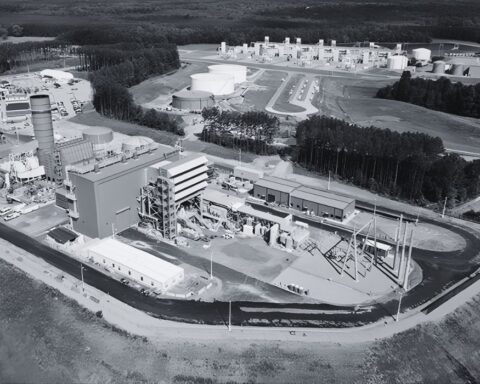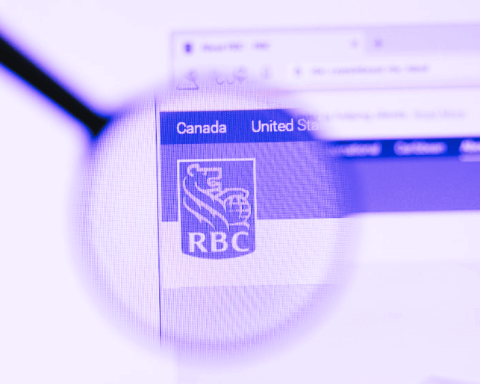A shareholder advocacy group is challenging the Royal Bank of Canada’s (RBC) use of a fast-growing new financing tool called sustainability-linked debt, in which companies promise to pay financial penalties if they don’t meet social and environmental performance targets.
The new product line, which includes both bonds and loans, has seen explosive growth in the last year, with total offerings 150% higher in the first nine months of 2021 compared with all of 2020. Sustainable debt is “the fastest-growing product segment within the capital markets today,” according to RBC, Canada’s largest bank.
While linking corporate debt to sustainability targets sounds like a great way of incentivizing companies to make environmental, social and governance (ESG) improvements, a lack of standardized rules has quickly opened the door to greenwashing, with some companies using the funds to continue business as usual with little ESG impact.
In response, Investors for Paris Compliance (I4PC), a Canadian shareholder advocacy group, filed a resolution with RBC February 17 calling on the bank to tighten its sustainable finance policies to preclude fossil fuel activity and projects opposed by Indigenous Peoples. The move was triggered by RBC’s decision to join other Canadian banks in a $1.1-billion sustainability-linked bond (SLB) issued by the giant Canadian oil and gas pipeline company Enbridge last year. As part of the offering, Enbridge promises to reduce its greenhouse gas emissions by 35% from its 2018 emissions by 2030. In addition, by 2025, the company pledges to reach 28% racial and ethnic representation, 40% gender diversity in its workforce and 40% female representation on its board of directors. If it fails to meet these targets, Enbridge promises to pay investors additional interest of 0.5%.
A Reuters news service study on the Enbridge offering and 47 other SLBs issued in 2021 casts doubt on the meaningfulness of the ESG targets. Nearly half the offerings – 23 – included a target that allowed the companies to improve at a slower rate than they had achieved previously.
In Enbridge’s case, the study found the company’s emissions had already fallen by 23% from 2018, when it sold its gas-gathering assets in British Columbia and Alberta. In other words, two-thirds of its 2030 target had already been achieved before the bond was issued. And the company was already more than halfway toward achieving its diversity and board gender targets when the bond was issued.
Enbridge has defended its target, saying that its 2030 emissions goal will require a significant company effort and that an opinion from research company Institutional Shareholder Services (ISS) found the targets to be relevant and core to its business.
While this is true, ISS also said the emissions target was not material to the whole corporate value chain because the emissions target is based on the company’s direct operations and power usage (Scopes 1 and 2) and does not include emissions from the consumption of the oil and gas itself (Scope 3), which is responsible for about 80% of the company’s emissions.
In its shareholder proposal, I4PC noted that Enbridge was able to use the SLB funds for its general corporate financing, including funding for the completion of its Line 3 oil pipeline expansion. The project is expected to produce 193 million tonnes of CO2 emissions, equivalent to 50 new coal-fired power plants, and has faced significant opposition from Indigenous communities.
An RBC spokesperson told Bloomberg the bank couldn’t comment on the matter until March, when it will publish a response to I4PC’s resolution. The resolution, filed on behalf of two I4PC investor clients, will be voted on at the bank’s annual meeting in April. Matt Price, I4PC’s director of corporate engagement for the finance sector, says the Enbridge offering shows the importance of firming up the bank’s ESG investment policies, especially since the bank has pledged to provide $500 billion in sustainable finance by 2025.
“It sounds like a great commitment, much needed when you think about the capital desperately needed in the economy for net-zero, but what does it actually mean?” he says. “Definitions are lax, and there’s little consensus on what ‘sustainable’ means in this context.”
The fast growth of sustainability-linked debt calls into question the Canadian banking sector’s commitment to the Net-Zero Banking Alliance (NZBA) principles.
Under the NZBA agreement, signed last year, the banks had 18 months from the time they joined to define their CO2 reduction targets for 2030. For the Canadian banks that joined in October, that puts their deadline at April 2023, a little more than a year from now.
Price says it’s time for the banks to act.
“Incentivizing incremental change is fine, but only within a credible framework where we’re reducing emissions in line with climate science,” he says. “But right now, the rules are so lax that banks are awarding green labels to companies taking us in the wrong direction, so that’s truly broken.”
Eugene Ellmen writes on sustainable business and finance.







